Nipah Virus Latest News:
The Government of India’s Ministry of Health and Family Welfare announced six to seven laboratory-confirmed cases of the Nipah virus spread in the Kozhikode district of Kerala between September 12 and 15, 2023, including two fatalities. Now, Pakistan is also attacked by the Nipah virus outbreak. This Nipah virus is a new disease in India in 2023, gradually spreading in Pakistan. The other cases were family members and hospital contacts of the initial case, whose source of infection is unknown.
Healthcare workers and high-risk contacts of the confirmed patients, as of September 27, 2023, have been identified and placed under quarantine and observation for 21 days. 387 samples have been analyzed since September 12; six instances proved positive for Nipah virus infection, while the remaining samples returned negative. There have been no newly discovered cases since September 15th. Since 2001, there have been six Nipah virus outbreaks in India.
History of Nipah Virus Updates:
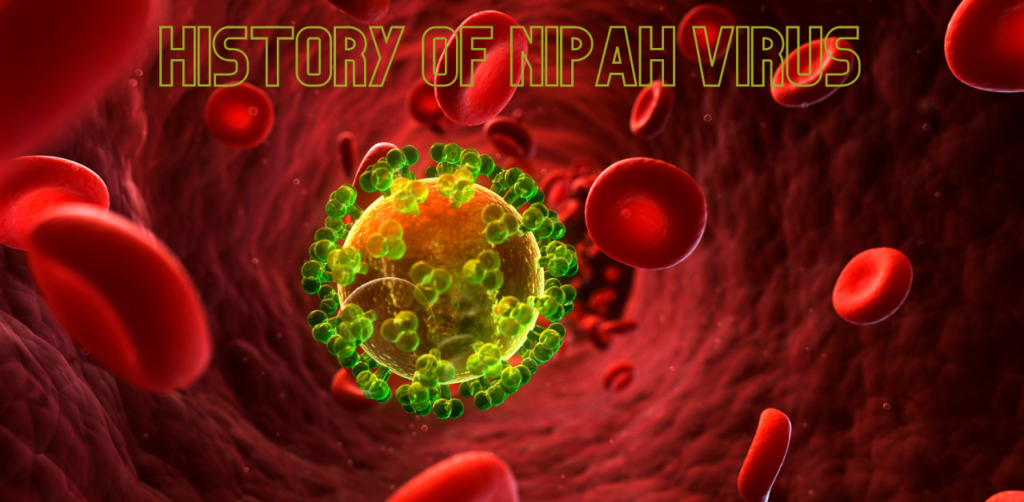
A zoonotic disease known as the Nipah virus was first discovered in 1998 after an outbreak in Malaysia. It is a fruit bat virus, and bats are its natural reservoir. The disease primarily spreads by direct contact with sick bats or their excrement, and outbreaks have been documented in Bangladesh and India, among other Southeast Asian countries. It is the latest virus in India. One of the intermediate hosts in certain epidemics was pigs.
Nipah virus infections have been linked to several clinical symptoms, including encephalitis, asymptomatic cases, and significant fatality rates in certain instances. Research efforts have focused on developing vaccines, monitoring, and an understanding of transmission dynamics in an attempt to lessen the threat posed by this deadly virus.
Can Nipah Virus Cause Death?
The Nipah virus can be fatal to people. The U.S. Centers for Disease Control and Prevention estimate that between 40% and 75% of cases will result in mortality. This depends on how competently the Nipah virus outbreak is handled by health experts.
What is the Nipah Virus?
The Nipah virus (NiV) mainly infects fruit bats but can also spread to pigs and other animals. Severe Nipah virus symptoms, including death, may result from it. There isn’t a vaccine for the Nipah virus or medicine for it. It is more prevalent in Asia, especially in Bangladesh, India, and Pakistan.
- Animals or people come into contact with an infected animal’s bodily fluids, such as blood, feces, urine, or saliva.
- Foods contaminated by an infected animal are consumed by humans.
- When caring for someone with the Nipah virus, people frequently come into close contact with them.
What are the Causes of Nipah Virus:
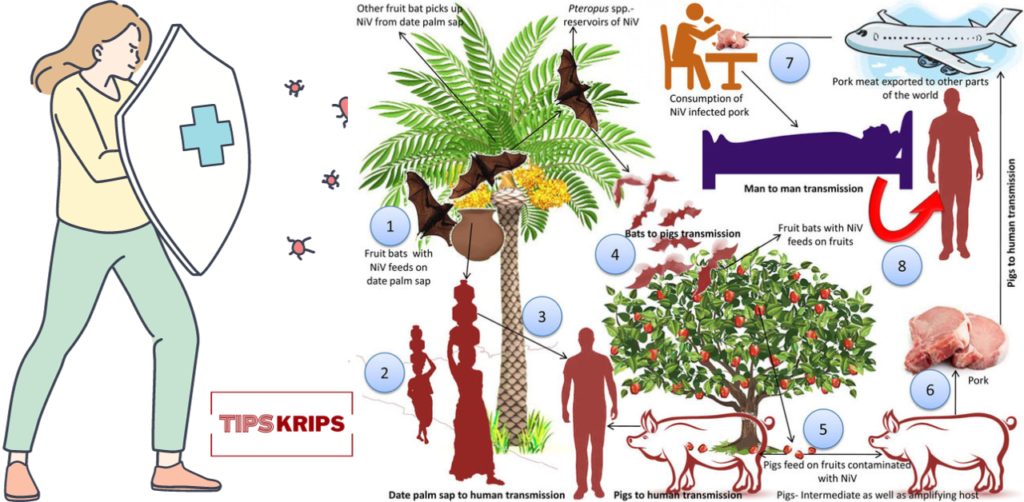
People who came into contact with infected pigs started becoming seriously ill, which was the first known occurrence of the Nipah virus. After pigs were infected by the virus, researchers discovered that bats were the initial source.
An animal becomes infected when an infected bat or pig transfers bodily fluids to another. The same thing occurs if human bodily fluid comes into touch with that of the animal. This may come from saliva, blood, excrement, or urine. Once a person has contracted the virus, they can transfer it to other individuals by bodily fluid exchange.
The Nipah virus spread infection can also happen when animal secretions contaminate food items. Fruit and raw date palm sap are examples of this. The Nipah virus also infects people who frequently climb trees that serve as bats’ resting and sleeping places.
What are the Nipah Virus Symptoms:
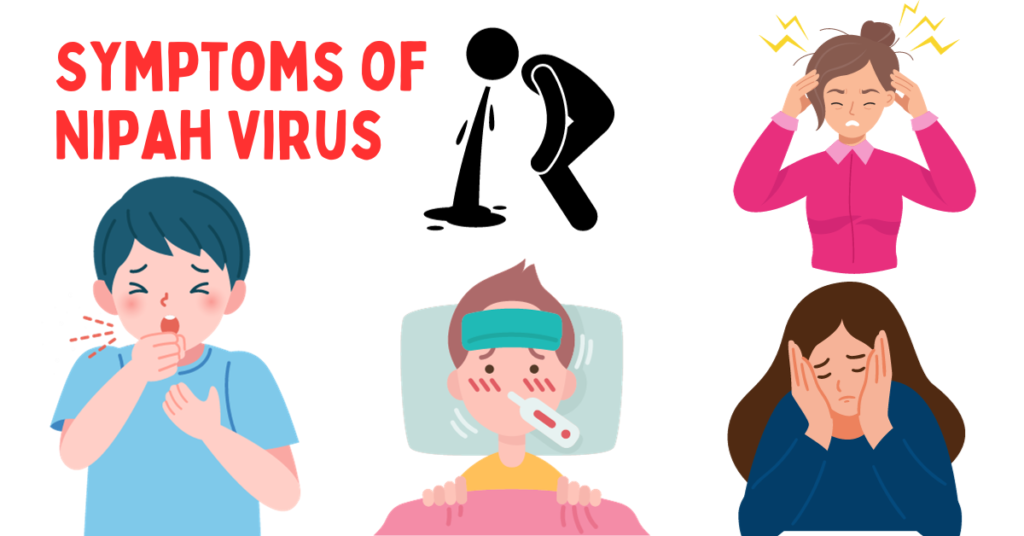
| Initial Nipah Virus Symptoms | Nipah Virus Symptoms After 15 Days |
| Usually, symptoms start to appear four to fourteen days after the Nipah virus spreads. It is typical to initially experience a fever or headache, followed by respiratory issues, including coughing and dyspnea. Nipah virus symptoms first signs | Severe cases can result in encephalitis, a potentially fatal brain infection. Among the other severe Nipah virus symptoms are: |
| Fever | Coma |
| Leprosy | Stupor |
| Snorting | Convulsions |
| Headache | Lost Memory |
| Breathing problems | Slurred words |
| Sore throat and coughing | Breathing difficulties |
| Extreme weakness and muscle soreness | Lost in thought and direction |
Why some people experience severe symptoms while others just have moderate ones is a mystery to researchers. Some Nipah virus carriers show no symptoms at all.
How is the Nipah Virus Tested:
A Nipah virus doctor can identify the Nipah virus by looking at your symptoms and talking about any recent trips to places where the virus is prevalent. A Nipah virus doctor can confirm the Nipah virus during the early stages of infection with a real-time polymerase chain reaction (RT-PCR) test. The following body fluids are used in this test to detect the illness:
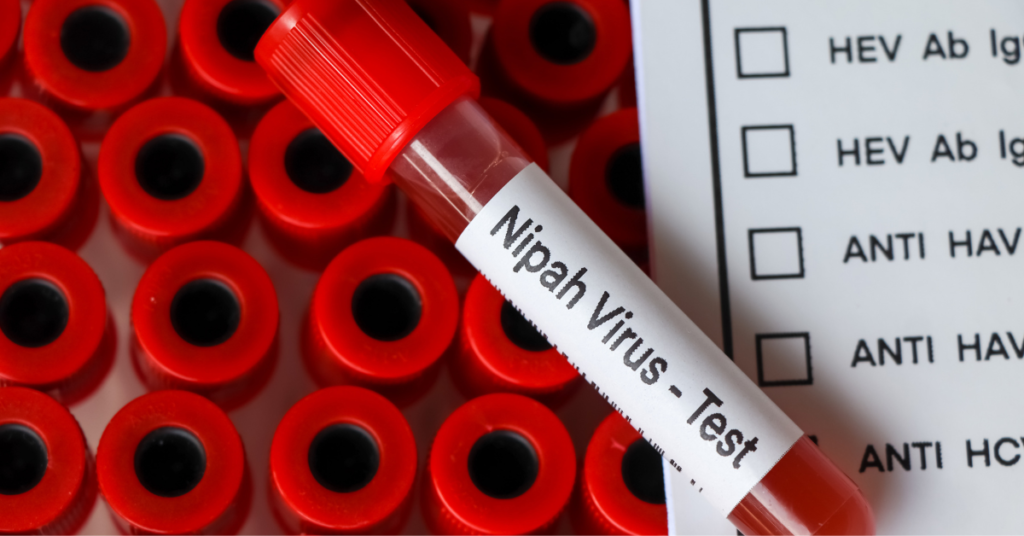
- Urine test.
- Blood tests.
- Throat or nasal swabs.
- CSF, or cerebrospinal fluid.
By checking for specific antibodies in your blood, medical professionals can diagnose the infection in its later stages or after you have recovered. Enzyme-linked immunosorbent assay (ELISA) is the term for this.
What is the Treatment of Nipah Virus:
Antiviral drugs are not available to treat the infection. This implies that treatment aims to control your nipah virus symptoms. This treatment of Nipah virus includes:
- Consuming a lot of water.
- Obtaining lots of sleep.
- taking ibuprofen or paracetamol.
- Using drugs to prevent vomiting or nausea.
- Using nebulizers or inhalers to help with breathing problems.
- Take medicine to prevent seizures if you have one.
- Researchers are looking into treating the Nipah virus with monoclonal antibodies.
All you have to do to get cured of all signs of the Nipah virus. This is the way to get rid of the Nipah virus.
How to Prevent the Nipah Virus:
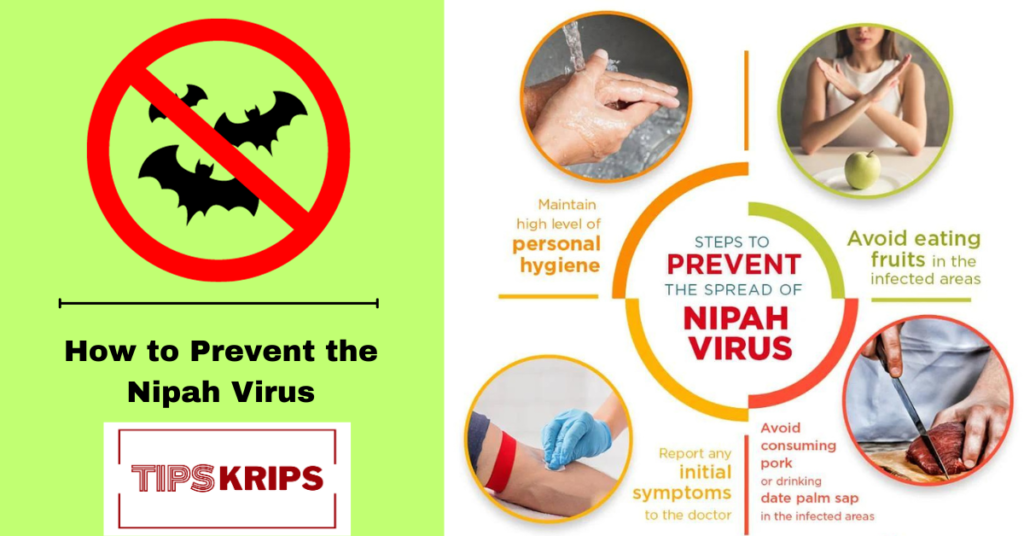
To prevent contracting the Nipah virus, if you reside in or visit an area where it is expected, you should take the following precautions:
- Often, wash your hands.
- Steer clear of sick bats or pigs at all costs.
- Masks to prevent getting the virus into your body.
- Wash fruits and vegetables thoroughly before using.
- Steer clear of shrubs or trees where bats are known to hang out or sleep.
- Any fruit that has touched the ground or has bat bites should be thrown aside.
- Steer clear of bodily fluids belonging to someone with the virus, such as blood or saliva.
- Tidy up and sanitize pig farms. Virus-carrying animals should be quarantined immediately.
- Steer clear of potentially contaminated foods and beverages, such as fruit and palm sap. Boil the palm sap before gathering it. Before eating any fruit, wash and peel it.
The Nipah virus can also be stopped from spreading by infection control methods. For instance, you should always wear personal protective equipment (PPE) if you care for someone with the Nipah virus or are suspected of having it.
- Gloves for medicine.
- Eye protection such as goggles or safety glasses.
- Robes with isolation or complete coverage to prevent bodily fluid leakage.
- Masks for surgery or medicine. The mask’s style may change based on how severe the outbreak is.
Healthcare professionals in hospitals and other healthcare facilities should follow standard infection control procedures. According to the Environmental Protection Agency, all clinical surfaces should be cleaned and disinfected with Q-list disinfectants.
Can people Survive with the Nipah virus?
Yes, humans can overcome the Nipah virus. However, the virus kills between 40% and 75% of those who contract it. This rate fluctuates according to how well each nation can identify and control the virus. Symptoms can vary widely from a slight fever and headache to a brain infection or even death.
Is there a Vaccine for Nipah Virus?
No, there is no medication or Vaccine for the Nipah Virus.
What are the high Nipah virus risk factors?
Interacting with bats, pigs, and humans with a known illness is the primary risk factor for spreading the Nipah virus, particularly in regions where epidemics have occurred. You must avoid sick animals at all costs. Since bats can deposit feces, urine, and other fluids on objects, eating raw date palm sap or fruit is equally risky.
What main side effects does the Nipah virus cause?
It is known that convulsions and personality changes are among the long-term consequences. A small percentage of individuals see symptoms months or years after exposure to the virus because it is dormant—meaning that although you have the virus, you are not experiencing any symptoms. Even after recovering from encephalitis, some people relapse and contract the illness again.






